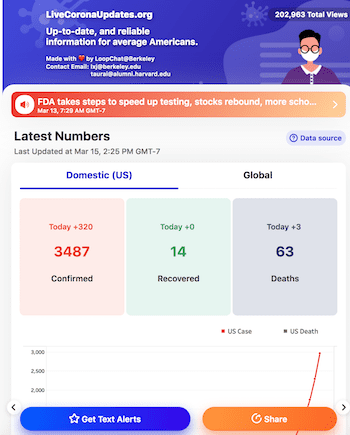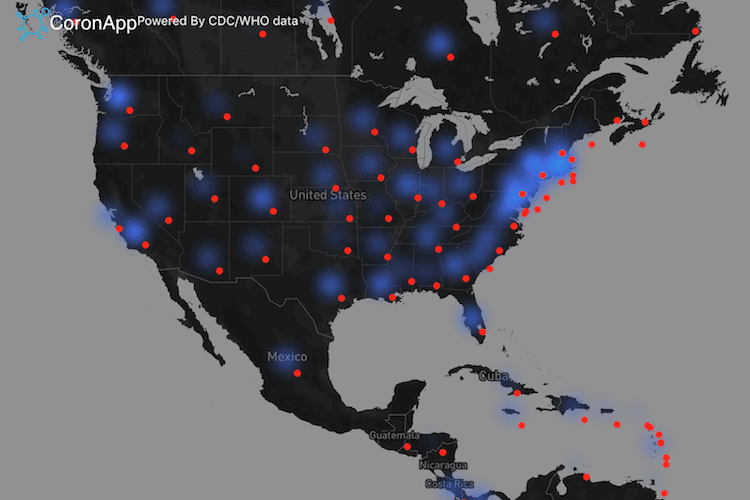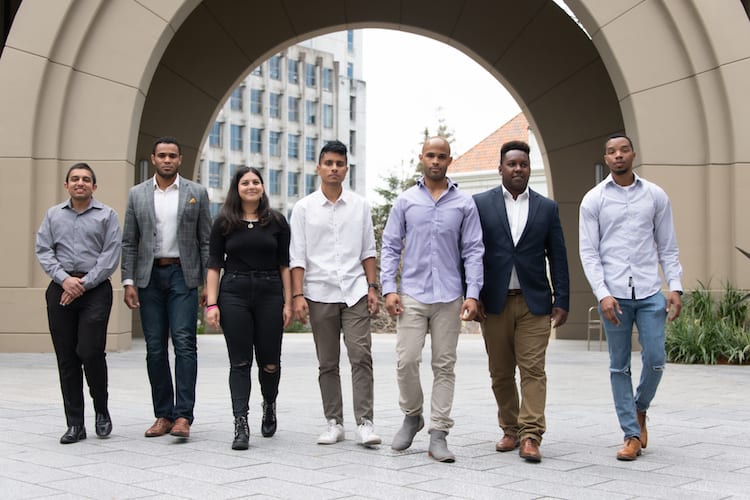Jason Li, BS 20, was at brunch with friends earlier this month chatting about the impact of the coronavirus when an idea popped into his head.
“I realized that the coronavirus was getting worse, and that people should be informed of the figures so that they can properly assess their risks,” said Li, a senior who is a double major in business and computer science. “But without data, they can’t do anything.”

That idea led Li and his team to work two straight days and nights toward the launch of LiveCoronaUpdates.org. The website aggregates data on coronavirus cases from the WHO, local governments, and major American news outlets. So far, the website has had more than 210,000 page views.
Li and his team, which includes code-savvy interns and engineers who work at his chat-and-payment startup, LoopChat—currently housed at Berkeley SkyDeck—update the figures every three to four hours.

Li, a budding entrepreneur, says he aims to provide accurate, easy-to-understand information about the virus, including the number of deaths, confirmed cases, people who have recovered and active cases in specific geographical areas. The goal is to get the data to the largest audience possible and to help calm anxiety with facts people can rely on as they navigate the new normal of their daily lives.
CoronApp Team races to develop mobile app
Li isn’t the only student on campus to jump into action on a coronavirus tracker. Anupam Tiwari and Anushka Purohit, both electrical engineering and computer science (EECS) majors and exchange students at UC Berkeley, started working on CoronApp together. The pair recently added first-year MBA students Akonkwa Mubagwa and Manuel Smith to their team.
The group connected at a recent coffee meetup for entrepreneurs in the Haas courtyard.
“The idea (for CoronApp) was great, but the form and user experience wasn’t there yet,” Mubagwa said of the design Tiwari showed him. “It was impressive that he set it up so fast, and we knew it would be useful.”
The students joined forces and later added coder Sahil Mehta, an EECS undergraduate; Ean Hall, MS 20 (mechanical engineering) who specializes in quantitative analysis; and Daniel Smith, a software developer. Sevith Rao and Andy Cheng, both medical doctors and first-year MBA students at Berkeley Haas, agreed to serve as CoronApp advisers.
CoronApp for mobile browsers, now available, allows users to click on red dots on a map to provide updates on virus cases. It integrates COVID-19 data from Johns Hopkins University, the Centers for Disease Control and the World Health Organization (WHO), and a Twitter feed provides the latest curated news.

Tiwari first tested CoronApp on his roommates, who rated it a seven out of 10. Their feedback helped him improve how fast the app loads—and to decide to add a Twitter feed and information on the right way to wash your hands and wear a face mask. The team had planned to offer the app for iPhones, but Apple is currently only accepting apps “from recognized entities such as government organizations, health-focused NGOs, companies deeply credentialed in health issues, and medical or educational institutions.”
Once they have perfected the app, the team believes it will become a scalable platform for crowdsourcing during future emergencies — from disease outbreaks to wildfires.

Mubagwa said that the way that the team came together to form CoronApp is a perfect example of why he came to Berkeley.
“Excellence across schools—engineering, business, and public health—allows for spontaneous cross-pollination,” he said. “We are all very different and from different backgrounds, but we are tied together by entrepreneurship. That’s what makes Berkeley so special.”
Li, who has been working to get word of his website across campus, said it’s rewarding to build a product that so many people find useful. “A lot of people have been emailing me saying how much they appreciate it,” he said. “I like building stuff that helps people. That’s what entrepreneurship is about: making a positive impact.”